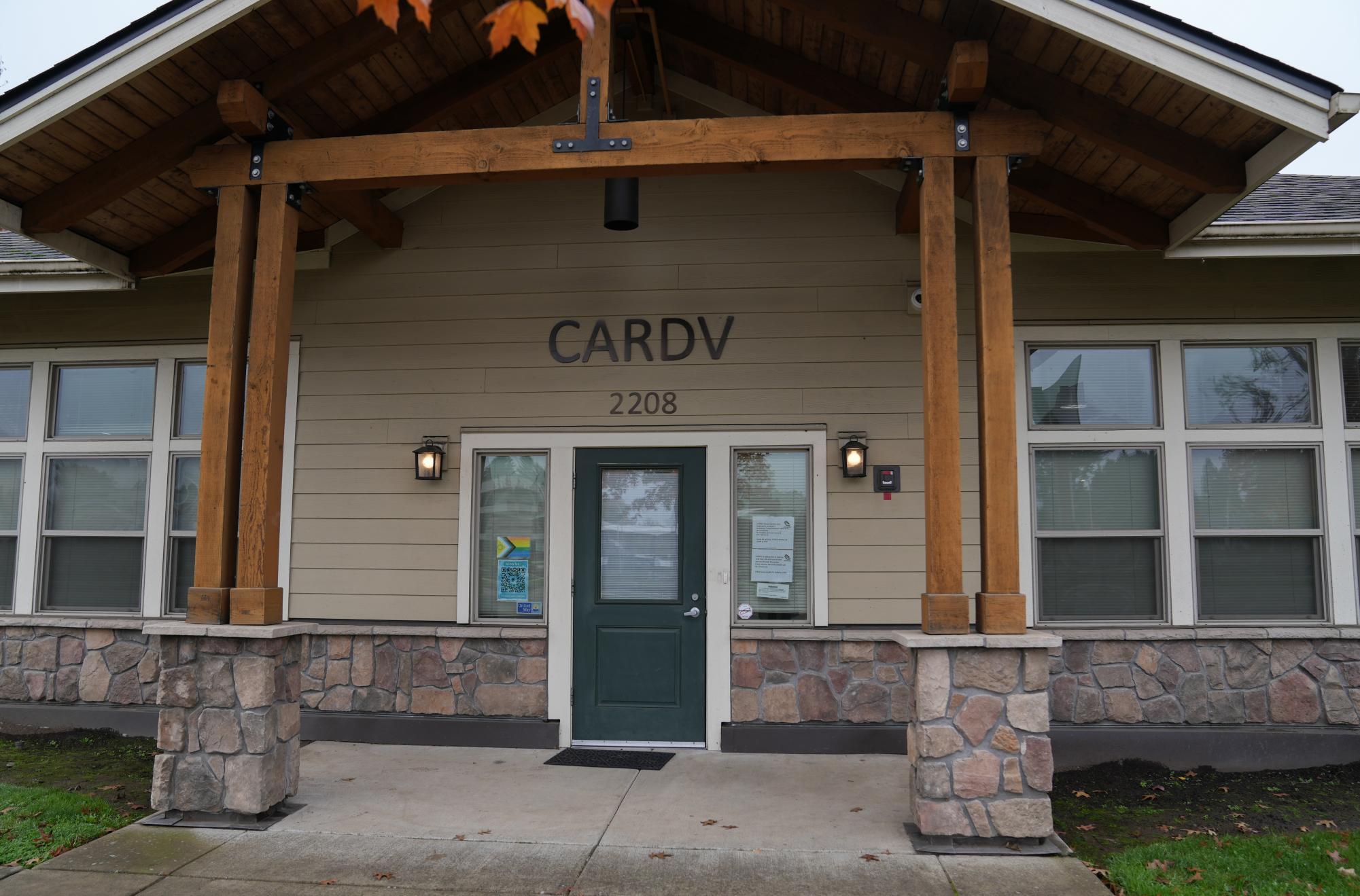While the Center Against Rape and Domestic Violence has been around in Corvallis since 1977, there are still many new changes and plans for the future of the organization.
Stephanie Miller was recently welcomed at CARDV as its new executive director, and she has a lot of ideas that she wishes to implement in the future of CARDV. Miller said that she is very excited to work at CARDV, which she calls a “phenomenal organization.”
“We are the only organization in the Linn and Benton counties combined that provides emergency shelters for … people fleeing from domestic violence and sex trafficking, and survivors of sexual assault,” Miller said.
Miller said that with a population of 227,000 people in the Linn and Benton counties, CARDV hopes to provide help and safety for even more people by opening a third confidential long-term shelter, with two currently in operation. The organization is fundraising for staff support for the new location.
CARDV currently has a 24/7 hotline with trained advocates, legal advocacy for survivors to help them with restraining orders, court dates and follow-ups, help with safety planning, long-term shelters, paying for short-term motel stays, transportation and other financial assistance.
The organization also sends out advocates to meet with clientele and help them find safety.
Miller has even more ideas for CARDV with her new position.
“The vision is to create robust programming (and) additional shelters,” Miller said. “Focus on prevention work as well, which means outreach and education awareness … Be heavily involved in policy changes at that level, being at those advisory committee tables and to represent CARDV and the needs in our community.”
Miller is passionate about prevention and said she hopes to get even more involved in primary and higher education. She said she wants to host more workshops with community organizations, specifically faith-based organizations.
“When I talk about prevention, it’s about how do you break the cycle as well, not only for survivors but perpetrators,” Miller said.
One way that CARDV is involved with education is that they work with Oregon State University’s Center for Advocacy, Prevention and Education, where advocates take over the 24/7 hotline during the nighttime. For more information about CAPE, visit https://cape.oregonstate.edu/.
CARDV fundraises at multiple points throughout the year by hosting events, and is always accepting donations in the form of money or other necessities. They have two events planned for 2024: an annual Safe Family Benefit Breakfast in February and a 5K fun-run in May that is meant to raise awareness and get donations.
Miller also plans to increase CARDV’s social media presence by posting more often on Instagram and Facebook.
“And that’s what it is,” Miller said. “(An) increase in accessibility of our services. If people don’t know about us, how are they going to access us? That’s a big thing.”
Another plan that Miller hopes to implement is a relief team, which would be a group of advocates who go through the necessary training, but rather than be full-time advocates, they would pick up shifts from time to time in order to help CARDV when they don’t have enough staff. She mentioned that this opportunity could be great for college students looking for a way to give back to their community and make some money.
“I think one of the biggest changes that’s impacted us is community awareness,” said Mary Zelinka, facilities manager at CARDV, and who has been working at CARDV for over 33 years.
Zelinka talked about how important it is for CARDV to be involved in the legislature, because writing letters to congresspeople and working with the state is crucial in making the incremental changes that lead to overall positive change.
Zelinka has seen CARDV change a lot since she started working there, but still has many hopes for the organization.
“I want to have our Linn county shelter up and running,” Zelinka said. “But also to be fully staffed, so that people can respond quickly, not just to survivors, which we’re already very good at, but also to community education.”
Zelinka also focused on education as a tool for prevention, saying that she heard nearly 2,800 students were educated last year about healthy relationships in schools in Linn and Benton counties, and is hopeful that even more education about healthy relationships can happen in the future.
“It’s more than just here,” Zelinka said. “Globally, I want when there are instances of rape, child sex abuse, stalking, using someone in prostitution or pornography or domestic violence, that its so shocking or upsetting to the general public, that there’s just no tolerance for it.”
Zelinka talked about how amazing it was to see everyday people trying to help others and is glad to see how much progress has been made since she started working at CARDV.
“I really believe in the bottom of my bones that we were changing the world,” Zelinka said. “So many things have changed since we started this and (we’re) just ordinary people.”
“The future is bright for CARDV,” said Miller.For more information on CARDV, visit https://cardv.org/.












































































































